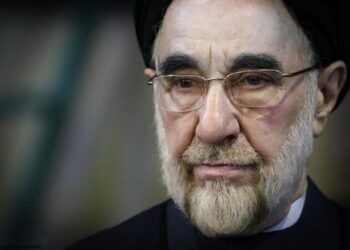It was not clear what their goal was. They arrested Shafii and took from his house books, papers and hard drives. But before the end of the day, they freed Shafii and returned all his possessions.
Some thought that those in the regime who were angry over the hikers’ challenge to the regime thought Shafii might have had something to do with putting them up to it.
Shafii himself had suspected he might be blamed and made a point of publicly condemning the hikers’ critical remarks the day before his home was raided.
Shafii said after the raid that he was concerned that he might be forbidden from leaving the country. And, sure enough, when he arrived at the airport Sunday to catch a plane for a trip to the United States, his passport was confiscated.
The next day, the Judiciary confirmed that Shafii was indeed barred from leaving Iran. In a written statement, it said it would explain why “later.” That is the standard terminology when the regime has no intention of giving an explanation.
As for the earlier raid and arrest, Shafii told the International Campaign for Human Rights in Iran (ICHRI) that almost all the questions he was asked at the interrogation were about the two hikers.
He said five security agents roused him at 7 a.m. They showed him an arrest warrant. “They searched the entire house—including the safe, the closets, everything, for one or two hours. Even though they were respectful, this was wrong in essence.”
They then took him to Evin prison where he underwent interrogation for several hours. At the end of the day he was released and all his materials returned.
“Whatever the young Americans do and whatever they say, how is that related to me?” he asked. “I believed that they were innocent and I did my job. But if, upon going home, they say some things, how is that related to me?”
The Judiciary has an increasing propensity of going after defense attorneys, especially those raising human rights defenses that pose major embarrassments for the regime.
Javid Houtan Kian, who represented Sakineh Moham-madi-Ashtiani, the woman sentenced to be stoned for adultery, has been detained since last October on charges of having links to “anti-revolutionary” groups.
Mohammad-Ali Dadkhah, who defended the Christian minister, Yousef Nadarkhani, has been sentenced to nine years in prison, though he is free for the moment while awaiting action on his appeal.
Dadkhah thinks his main offense was working as part of the Center for the Defense of Human Rights, the organization founded by Nobel laureate Shirin Ebadi. Other center members such as Nasrin Sotoudeh, who defended Baha’is, and Abdolfattah Soltani, who worked for the family of the late Iranian-Canadian Zahra Kazemi, are already in prison.














